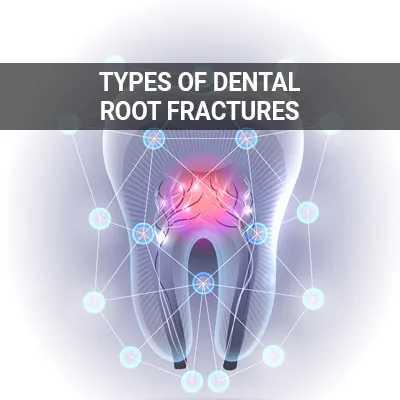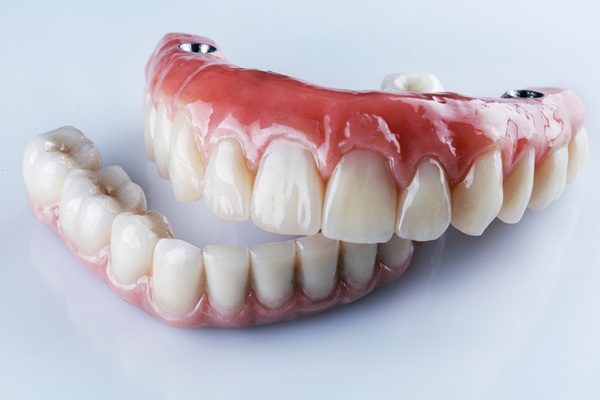The Truth Behind Root Canals Marietta, GA
Root canals are one of the most common dental procedures. A root canal treatment is when the dentist removes inflamed or infected pulp from the tooth center, cleans and disinfects the remaining space, and then fills and seals it. This procedure eliminates bacteria from the affected area, prevents reinfection, and preserves your natural tooth.
Root canals are available at Happy Dental and Orthodontics and the surrounding area. Chances are you have heard a lot of misconceptions about the procedure. Our staff can provide the truth behind root canals—call 770-200-4034 to schedule a consultation.
When a Root Canal Is Needed
Root canals are a fairly straightforward procedure that repair and protect badly decayed or infected teeth. The pulp of the tooth, which contains the nerves and blood vessels, can become irritated and infected for many reasons. These include deep decay, repeated dental procedures, large fillings, a chip or crack, or facial trauma.
Some of the symptoms that indicate a need for a root canal include:
- Sensitivity to hot or cold foods and liquids
- Severe discomfort while chewing or biting
- Small, pimple-like irritations on the gums
- Swollen or tender gums
Patients who are experiencing any of these symptoms will want to make an appointment to see our dentist. The more time goes by, the more likely the tissue surrounding the tooth will get infected — increasing the chances that the tooth may have to get extracted. However, there is no need to worry. Getting a root canal is no worse than getting a filling and is effective.
“Root canals are a fairly straightforward procedure that repair and protect badly decayed or infected teeth.”
A Safe and Common Procedure
Root canals happen more often than you think. According to the American Association of Endodontists, more than 15 million of them were performed from 2005 to 2006. That breaks down to 41,000 procedures performed in the United States every day. Root canals eliminate bacteria from the tooth and ultimately save it from needing to be removed.
Often, the procedure allows patients to keep their natural teeth for a lifetime. Despite the frequent misconceptions, root canals are low-risk and can be compared to a routine cavity filling. Thanks to advancements in dental techniques and technologies, root canals yield successful outcomes with fewer complications.
“Root canals are more common than you think.”
Common Myths About Root Canals
Unfortunately, there are many common myths about root canals that stop patients from seeing the endodontist. The main three misconceptions are:
- It is painful to get a root canal.
- Getting a root canal will cause illness.
- Tooth extraction is better than root canal treatment.
While root canal treatment may have been painful in the past, modern technology and anesthetics have made the experience no more discomforting than getting a cavity filled. Root canal treatments also reverse toothaches by removing the source of infection or inflammation. Plus, endodontists are experts in pain management.
Furthermore, the claim that links root canal treatment to illness is based on an outdated and poorly designed research study that has long since been debunked. While some may claim that root canal treatment may make patients more likely to become ill or contract certain diseases in the future, there is no valid, scientific evidence supporting this theory.
Finally, it is always best to save a natural tooth whenever possible. In most cases, this is safer, less painful, and more economical than a tooth extraction. Preserving a natural tooth lessens the risk of further infections, and, as mentioned, root canal treatments are typically not as painful as people believe. Many people also mistakenly believe that tooth extraction is the cheaper option. However, this is often untrue when considering the whole picture.
“While root canal treatment may have been painful in the past, modern technology and anesthetics have made the experience no more discomforting than getting a cavity filled.”
Check out what others are saying about our dental services on Yelp: The Truth Behind Root Canals in Marietta, GA
Rare Complications
While rare, some complications may present themselves after a root canal procedure. If the pain goes away but then returns, patients will want to schedule an exam. A new infection can take hold if a canal got missed in the roots, a crack in the tooth root went undetected, or sealing material broke down over time. Other complications include teeth breaking if a crown was not placed in a timely fashion, root fracture from decay, or numbness from the material used to fill the root canal leaking into other areas of the tooth.
Sometimes, another root canal can fix the problem or need a root-end resection procedure. Always remember to follow all of the post-procedure instructions provided by our dentist to heal quickly. Patients who start experiencing any complications should call our office to schedule an appointment.
“While they are rare, there can be some complications after a root canal procedure.”
Questions Answered on This Page
Q. When is a root canal needed?
Q. Are root canals a safe and common procedure?
Q. Are there rare complications associated with root canals?
Q. What are the pros and cons of root canals?
People Also Ask
Q. How can a root canal help save my cracked tooth?
Q. Is increased sensitivity to temperature a sign that endodontic surgery is necessary?
Q. What are some alternatives to a root canal?
Q. Is tooth extraction normal?
Q. What are the reasons for tooth extraction?
Q. What are the services offered endodontists vs. general dentist?
The Pros and Cons
Consider a few root canal pros and cons when weighing the options. Some of the benefits include:
- Preserving the natural tooth, which will function better than any dental implant
- Preventing the spread of infection
- Relief from tooth discomfort
- Being a viable alternative to tooth extraction
In the end, the most important reason to get a root canal is that it will save the natural tooth. This will help with chewing, normal biting force, appearance, and protecting the rest of the teeth from excessive wear and tear. However, there is no guarantee that the procedure will be 100% effective. Following the procedure, the patient will need to be careful with the tooth since it will become brittle and be more susceptible to cracks. In some cases, a failed procedure can cause an infection to spread.
As with any dental procedure, there are risks to having a root canal. No matter the case, our dentist and team will take every precaution necessary for the patient's safety. Our dentist will help each patient weigh these pros and cons to assist them in making the right decision.
“Consider a few root canal pros and cons when weighing the options.”
Frequently Asked Questions
Q. When would I need a root canal?
A. Root canals can be necessary when an infection in your tooth reaches the tooth's nerves and causes extensive decay. A bad crack or broken tooth can also require a root canal. Signs you may need a root canal include extreme tooth discomfort while chewing and sensitivity to hot and cold foods and liquids.
Q. Are root canals painful?
A. Several myths surround root canals, and pain is one of them. A root canal is no more painful than having a cavity filled. Our dentist will help you manage any pain during and after the procedure.
Q. Can I have another procedure other than a root canal?
A. When it comes to saving your natural tooth from infection or decay, a root canal is the preferred option. The only other viable alternative is tooth extraction. Dentists recommend attempting to save your natural tooth before choosing extraction.
Q. What can I do to avoid root canals in the future?
A. To avoid root canals in the future, practice good oral hygiene along with scheduling regular dental checkups and cleanings. Also, limit sugary foods to help protect your teeth from decay. If you play contact sports, wear a custom-made mouthguard to avoid the risk of teeth injury.
Endodontic Terminology
Learn More Today
Root canal treatments can make the difference between preserving or losing your teeth. We at Happy Dental and Orthodontics can help. Call us today at 770-200-4034 to schedule an appointment and learn more.
Helpful Related Links
- American Dental Association (ADA). Glossary of Dental Clinical Terms. 2024
- American Academy of Cosmetic Dentistry® (AACD). Home Page. 2024
- WebMD. WebMD’s Oral Care Guide. 2024
About our business and website security
- Happy Dental and Orthodontics was established in 2021.
- We accept the following payment methods: American Express, Cash, Discover, MasterCard, and Visa
- We serve patients from the following counties: Cobb County and Fulton County
- We serve patients from the following cities: Marietta, Smyrna, Sandy Springs, Atlanta, Kennesaw, Roswell, Acworth, East Cobb, Alpharetta and Fair Oaks
- National Provider Identifier Database (1407403652). View NPI Registry Information
- Norton Safe Web. View Details
- Trend Micro Site Safety Center. View Details
Back to top of The Truth Behind Root Canals











